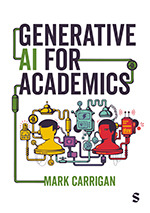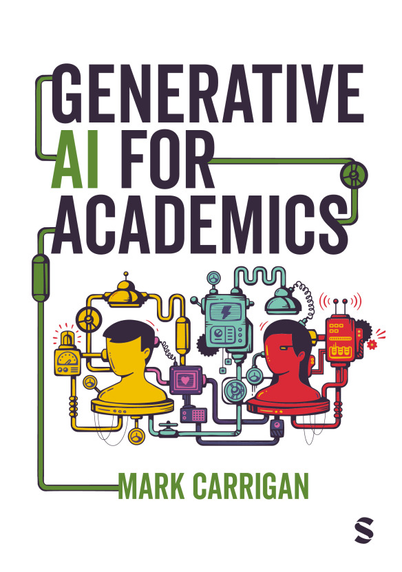I wrote a few days ago about the hasty formulation of a book project stunting my enjoyment of writing. I felt a momentum developing in this blog series, an energy in my writing reflected in the energy of the feedback I was receiving. It felt like there was a value to be found in making this a more formal project, captured in my own enjoyment of writing it and the worth which other people were seemingly finding in the series. There was also the perverse lure of being prolific, the odd satisfaction which came from having written a book in a matter of months last year, finding a refuge in immersion when all sorts of things were going wrong in my personal life.
In retrospect I can see how this immersion tied together desire and drive in a powerful way. It provided me with a way to make a beginning from a series of endings, providing a concrete response to the diffuse recognition that I needed a mid career research agenda, actualised through ritualised immersion in writing in libraries, parks and gardens. In a real way it eased me into a new phase of my life, helping me put a shitty few years behind me.
It left me newly aware of how writing can be a locus of personal change, in ways that might not feel entirely clear to you at the time. The book suddenly presented itself to me as a potential whole but I think it could only be animated as an object because of the wider changes underway within my life. This is how I described the transition in the first paragraph of the acknowledgments for Generative AI for Academics:
I’m usually a messy and exploratory author who needs to start writing in order to work out what I’m trying to say. Yet the idea for this book popped into my head fully formed in May 2022 when I was relaxing into a morning swim. I was suddenly struck by the parallels between the practical challenges GAI poses for academics and the issues raised by social media which drove my work in the 2010s. It is a project which emerged after a strange year of personal upheaval that was simultaneously the most professionally rewarding period of my life. The Manchester Institute for Education has been a remarkably collegial environment in which to settle into the lectureship I had been determinedly avoiding since finishing my PhD in 2014. It is hard to imagine a more encouraging environment as my fascination with GAI developed. It is a genuinely warm and friendly place in which to work, which is a remarkable achievement reflecting a continual commitment from my colleagues in the difficult context of the neoliberal university.
Hence when I felt a familiar upsurge of energy about a nascent project, immediately throwing myself into it only to find out it was the wrong project pursued much too quickly. The difference was the wider background of turmoil which meant the previous book could be a locus of desire. I needed an object for my drives around which they could rotate compulsively, giving me something to jump into frequently and forcefully throughout the day. Articulating the project made it possible to immerse myself in a way that an open-ended exploration wouldn’t have been able to. In contrast when everything in my life is pretty good, with the partial exception that I’m knackered, it’s not possible to tie drive and desire in this way. The shifting coordinates of my life last summer created a need for a structure which could hold my focus and provide an outlet for my energy. In contrast I’m pretty satisfied with how my life is unfolding at this point, with the corollary that I want to be less cognitively occupied by my work rather than more. I want to expand the horizon of my drives rather than contract them, with summer being the perfect point to do this.
(Which makes the idea that I was going to write another book this summer obviously foolish, particularly as I have a 90% finished theory book which I’m contractually obliged to deliver by September 🙄)
Despite having written this blog for nearly fifteen years, I’ve only recently had the language to really analyse how I relate to it. The open-ended character of blogging, the lack of a specified genre and the immediacy of the process make it a locus of drive satisfaction rather than desire. It’s a place where I can write as an end in itself, enjoying the peculiar pleasure which comes from capturing my fringe thoughts. This is satisfying to me in quite a primitive way: an obsessive form of cognitive decluttering, satisfying my curiosity in a way which evades reliance on the Other and the vague feeling of empowerment which comes from practicing my capacity to articulate thin ideas in thick yet precise language. This series is a bit of a departure in that I’ve given this practice a shape, framing each post as a contribution to an emerging whole.
But I think the reason it’s proved so energising is that this partial invocation of the imaginary (a series which will have an existence as a whole, seen by myself and others – “what will it mean to them? what will it mean to me? what sort of person would write such a series?” etc) also provides an outlet for the drives. I am circling around the topic of enjoying writing in a rather disorganised way, literally just responding to the most proximate fringe thought when I sit down to write a post. The fact I am enjoying writing these posts about enjoying writing creates of a feedback loop, generating new fringe thoughts but also energising the process. It is I think quite an interesting example of Lacan’s peculiar sense of sublimation, which “elevates an object to the dignity of the Thing”. The circuit I am more or less locking myself within imbues the process with a dignity which further animates my rotation around it.
This is a long-winded way of making a simple point: not everything you write has to become something. In fact the pressure to become something can stunt the writing on which that becoming depends. If you write from drive rather than desire, from the mundane satisfactions which writing brings rather than fantasies of where it will lead, everything else will take care of itself. Obviously you need to formulate projects sometimes if you want something to actually happen beyond your notebook, document or blog. But you should tread lightly in this process, which I thought I knew this but forgot over the course of last year. Handle your ideals with gloves, as Nietzsche once put. The process of knotting together the satisfactions of writing with a desire to provide it with a final form can easily go wrong. If it does the enjoyment of writing can suddenly prove frustratingly elusive.
(I initially wrote ‘suffering’ rather than ‘something’ in the title, which I wanted to record as my favourite writing-related freudian slip)
https://markcarrigan.net/2024/05/31/how-to-enjoy-writing-19-not-everything-you-write-has-to-become-something/
#GenerativeAIForAcademics #Nietzsche #writing

